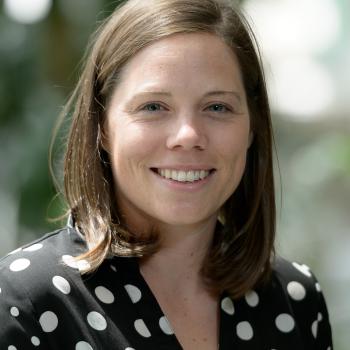My research is focused on sustainable cropping systems on underproductive agricultural landscapes for the production of food, fuel, and ecosystem services such as clean water, pollination services, and improved soil health.
Biography
- Education:
- PhD in Crop Sciences - University of Illinois Urbana-Champaign 2020
- Master of Science in Environmental Biology - Governors State University 2015
- Bachelor of Art in Environmental Science (major) and Biology (minor) 2012
- Research Interests:
- Land management impacts on ecological systems and community dynamics for improved production systems that are attractive and feasible for producers and landowners
- Current Research Projects:
- Scaling Up the Ecosystem Services of Bioenergy Landscapes - evaluating the environmental, economic, and ecosystem services of integrated bioenergy crops within agricultural landscapes
- Next-Generation Feedstocks for the Emerging Bioeconomy - evaluating biomass yield, biomass quality, and ecosystem service provision of large-scale production of bioenergy switchgrass across the U.S. Midwest
- Expanding the Conversion of Habitat in the Northern Great Plains Ecosystem (EXCHANGE) - evaluating the integration of bioenergy and row crops in central and western Nebraska to enhance climate resiliency, landscape diversity, and contribute to the emerging bioeconomy
- Awards and Recognitions:
- 2020 - Impact Argonne Award for extraordinary effort for achieving project goals while demonstrating the Lab’s core values
- 2020 - Safety core value shout-out
- Memberships:
- American Society of Agronomy (2017-present)
- Soil Science Society of America (2017-present)
- Crop Science Society of America (2017-present)
- North American Regional Association of the International Association of Landscape Ecology (2020-present)
- Publication Highlights:
- Zumpf, C., J. Cacho, N. Grasse, J. Quinn, J. Hampton-Marcell, A. Armstrong, P. Campbell, M.C. Negri, and D.K. Lee. 2021. Influence of Shrub Willow Buffers Strategically Integrated in An Illinois Corn-Soybean Field on Soil Health and Microbial Community Composition. Science of the Total Environment, 772: 145674
- A nine-year study evaluating shrub willow buffer integration on soil health properties (chemical, physical, and biological) in a corn-soybean field
- Zumpf, C., M. Lee, S. Thapa, J. Guo, R. Mitchell, J.J. Volenecand, and D.K. Lee. 2019. Impact of warm-season grass management on feedstock production on marginal farmland in Central Illinois. Global Change Biology Bioenergy, 11(10):1202-1214
- Evaluates biomass production of high-yielding warm season grasses in monocultures and polycultures on marginal land in central Illinois
- Zumpf, C., M.C. Negri, J. Quinn, P. Campbell, J. Cacho, P. Townsend, and L. Boby, 2018, Willow Buffers in Agricultural Systems: Linking Bioenergy Production and Ecosystem Services. Washington State University Extension Publication TB55E.
- Case study on the use of shrub willow as buffers in Fairbury, IL that overviews the previous published work and new data on ecosystem service provision by shrub willows including nitrate leaching reduction, nitrous oxide emission reduction, and improvement in soil health
- Zumpf, C., H. Ssegane, M.C. Negri, P. Campbell, and J. Cacho. 2017. Yield and water quality impacts of field-scale integration of willow into a continuous corn rotation system. Journal of Environmental Quality, 46(4):811-818.
- Field-based evaluation of the strategic integration of short-rotation willow as buffers within an agricultural landscape on nutrient recovery for nitrate leachate reduction and biomass production
- Zumpf, C., J. Cacho, N. Grasse, J. Quinn, J. Hampton-Marcell, A. Armstrong, P. Campbell, M.C. Negri, and D.K. Lee. 2021. Influence of Shrub Willow Buffers Strategically Integrated in An Illinois Corn-Soybean Field on Soil Health and Microbial Community Composition. Science of the Total Environment, 772: 145674
